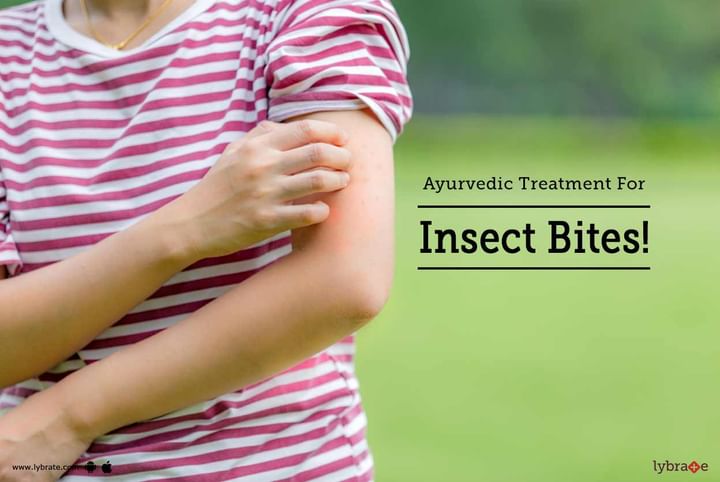Ayurvedic Treatment For Insect Bites!
Insect bites occur when an insect stings the upper layer of your skin externally. They generally lead to an allergic reaction or transfer of pathogens like virus, bacteria or parasites in the human body. Insect bites can be of many types since there are numerous species of insects around us. Some of the bites that you will come across more often are by mosquitoes, spiders, bee stings, bugs, mites, ants and such others. The most common symptoms of an insect bite include redness, swelling, irritation or discomfort, itching, itchy skin, and such others.
An insect bite is most commonly treated by using allopathic medicines which can be either applied externally or consumed orally to minimize allergic reactions. But Ayurveda gives you a method to treat insect bites which are natural, harmless and free from side effects. Some of the common ways to treat insect bites following the principles of Ayurveda are:
- Basil leaves and turmeric- If you take a handful of basil leaves, add turmeric to it and apply it on the insect bite, it acts as an antiseptic and prevents your wound from worsening.
- Onion application- Onions are specifically used to treat bee stings. You need to take out the sting, apply onions on the affected area and hold them in position using a bandage or a tape for at least an hour to get relief.
- Turmeric and sandalwood- You can use turmeric and sandalwood to soothe your wound as sandalwood has certain cooling properties, and turmeric will help in speeding up the healing process.
- Banana peel- The inner skin of a banana peel is used as an anti-irritant and it helps to cut down the discomfort, pain and irritation.
- Neem- Neem is a medicinal plant, which has one of the highest medicinal values among all the Ayurvedic agents. It is often applied to the wound in the form of powder mixed with water.
- Coriander- The juice from coriander leaves is also used to cure wounds. Depending on the thickness, it can be used along with water to provide relief to insect wounds.
Conclusively, it is always desirable to consult an Ayurvedic medical practitioner before applying the natural agents on sensitive body parts such as the skin.



+1.svg)
